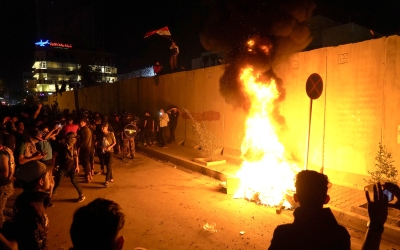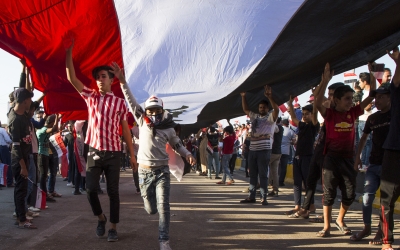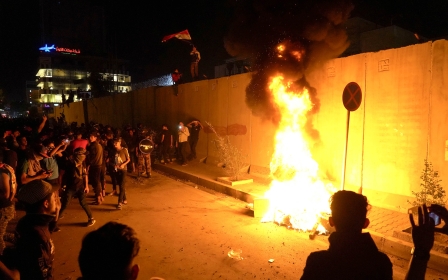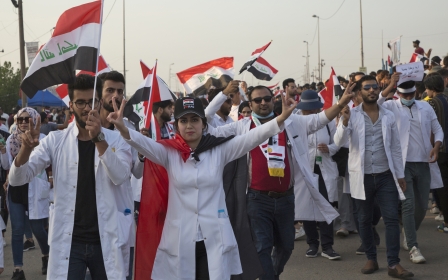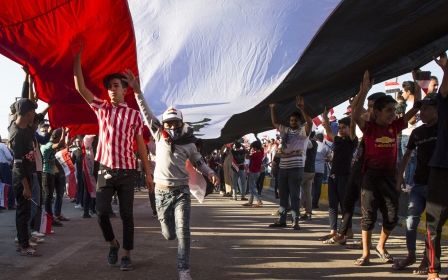Iraqi forces fatally shoot at least six protesters in Baghdad
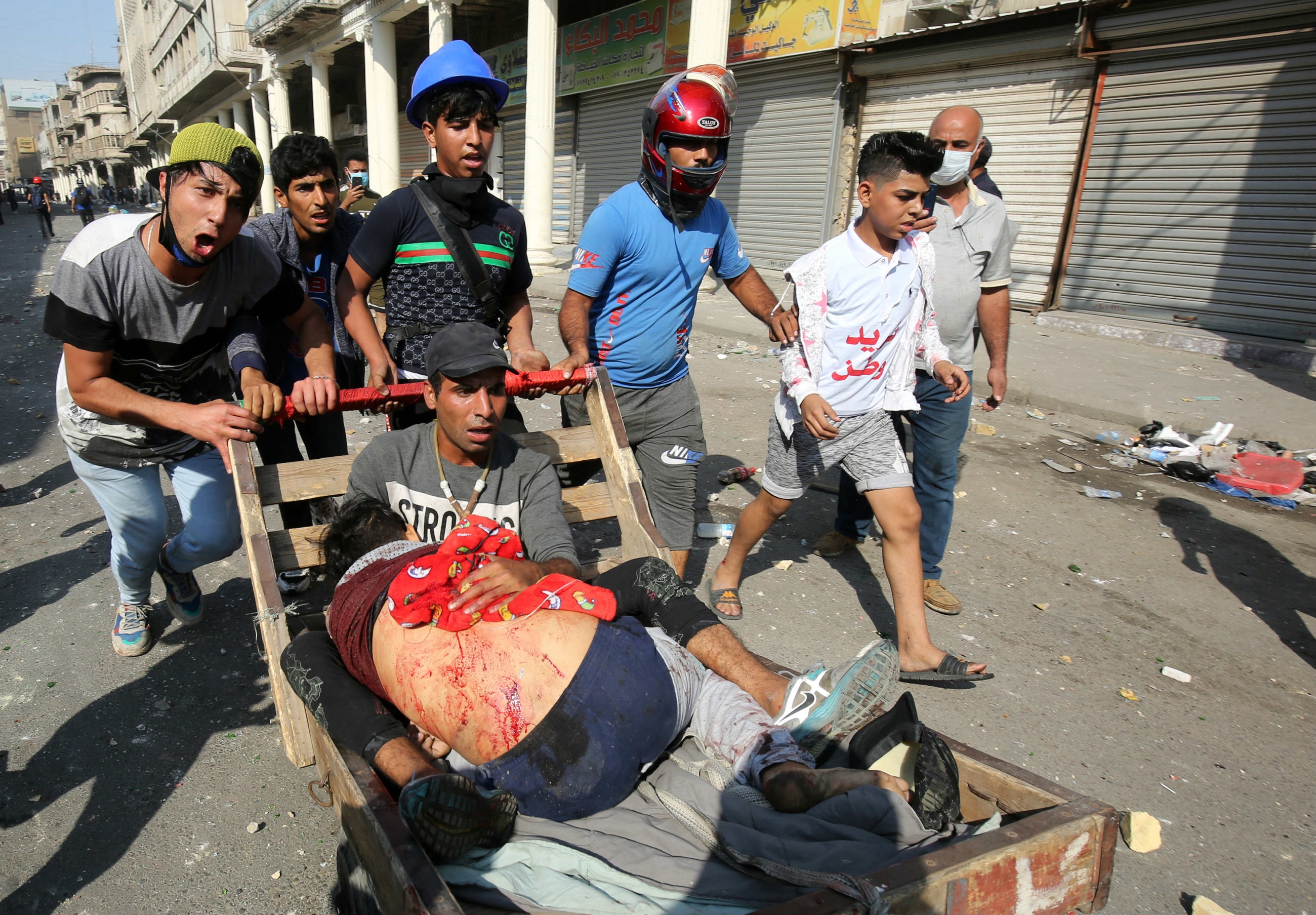
Iraqi security forces fatally shot at least six protesters in central Baghdad on Thursday, police and medical sources said, as weeks of deadly unrest showed no signs of abating.
At least 35 people were wounded in the clashes near Shuhada Bridge, they said, as mass demonstrations continued for a 13th straight day with thousands thronging central areas of the capital.
In southern Iraq, dozens of anti-government protesters burned tyres and blocked the entrance to the port of Umm Qasr, preventing lorries from transporting vital food imports, just hours after operations had resumed, port officials said.
In the city of Basra, security forces fatally shot at least four protesters as they tried to disperse an anti-government sit-in, Reuters reported.
The Iraqi government has failed to find a way out of the biggest and most complicated challenge to its rule in years.
The unrest has shattered the relative calm that followed the defeat of Islamic State (IS) group in 2017.
A crackdown by authorities against mostly unarmed protesters has killed more than 250 people since unrest broke out on 1 October over lack of jobs, services and an infrastructure wrecked by decades of conflict, sanctions and corruption.
Protesters, mostly unemployed youths, blame a political elite that has ruled Iraq since the toppling of Saddam Hussein in a 2003 US-led invasion, and demand a complete overhaul of the political system.
The country is beginning to feel the fiscal pinch of weeks of the unrest, which started in Baghdad and quickly spread to southern cities.
The new stoppage of operations at Umm Qasr port in the south is likely to compound financial losses a day after the government said that a week-long halt of operations there had cost more than $6bn.
Fuel shortages
Umm Qasr briefly resumed operations early on Thursday after most protesters cleared the area, the Reuters news agency reported.
But several dozen activists, relatives of a demonstrator killed during weeks of violence, then returned to block the main gate, port officials said.
Umm Qasr receives most of the grain, vegetable oils and sugar that Iraq depends upon.
Oil and security officials said operations resumed on Thursday at the nearby Nassiriya oil refinery, where protesters had stopped fuel tankers entering or leaving the day before.
Oil production and exports have not been significantly affected by the unrest, oil ministry officials say.
But the halting of fuel tankers that transport fuel from the Nassiriya refinery to regional gas stations have caused fuel shortages across the southern Iraqi province of Dhi Qar.
The refinery had recently been producing about half its capacity, oil officials said.
The internet returned briefly in most parts of Iraq on Thursday but went out again after 1pm local time (10 GMT).
Authorities have restricted internet access during the protests.
The government says it is enacting reforms but has offered nothing that is likely to satisfy most protesters.
Stipends for the poor, more job opportunities for graduates and pledges to punish a handful of corrupt officials have come too late for those demanding an overhaul of state institutions, a flawed electoral process and a system of governance that has fuelled endemic corruption, many Iraqis say
Middle East Eye delivers independent and unrivalled coverage and analysis of the Middle East, North Africa and beyond. To learn more about republishing this content and the associated fees, please fill out this form. More about MEE can be found here.


